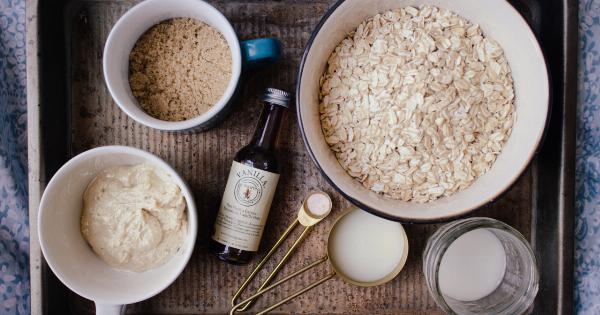Sugar is a common ingredient in many of the foods and beverages we consume on a daily basis. From desserts and candies to sodas and processed snacks, it seems like sugar is present in almost everything we eat.
However, the excessive consumption of sugar has been linked to numerous health problems, including obesity, type 2 diabetes, and heart disease. So, how much sugar can one consume according to the kind of food or beverage? Let’s take a closer look at the recommended limits for sugar intake from various sources.
The World Health Organization’s Recommendations
The World Health Organization (WHO) suggests that both adults and children should limit their intake of “free sugars” to less than 10% of their total energy intake.
Free sugars refer to those added to foods and beverages by manufacturers, as well as the natural sugars present in honey, syrups, and fruit juices. WHO further suggests that a reduction to below 5% energy intake per day would provide additional health benefits.
Sugar in Sweetened Beverages
Sugary beverages, such as soda, energy drinks, and fruit juices, are major contributors to excessive sugar consumption.
A single can of soda can contain as much as 40 grams (10 teaspoons) of sugar, which already exceeds the recommended daily limit for adults. Consuming these beverages regularly can significantly increase the risk of weight gain, obesity, and other health issues.
Sweet Treats and Desserts
Indulging in sweet treats and desserts can be a delight, but it’s essential to be mindful of the sugar content. A slice of cake or a candy bar can contain between 20 to 30 grams (5 to 7.5 teaspoons) of sugar.
While occasional indulgence is generally acceptable, it’s crucial to moderate the consumption of these sugary delights to maintain a healthy diet.
Hidden Sugar in Processed Foods
Sugar can often be found hiding in unexpected places, particularly in processed foods. Items like ketchup, barbecue sauce, salad dressings, and even bread can contain added sugar.
In fact, many processed foods are loaded with hidden sugars, making it essential to read food labels carefully. Opting for whole, unprocessed foods is always the healthier choice when it comes to managing sugar intake.
Sugar in Fruit
Fruits contain natural sugars, but they also come with many beneficial nutrients and fiber. Unlike free sugars, the sugar found in fruits is not considered harmful when consumed in moderation.
However, if you are watching your sugar intake, it’s advisable to consume fruits in their whole form rather than consuming excessive amounts of fruit juice, which can contain more concentrated sugars without the associated fiber.
Children and Sugar Consumption
Children, in particular, need to be mindful of their sugar intake as they are more susceptible to developing unhealthy eating habits.
The American Heart Association recommends that children between the ages of 2 to 18 limit their added sugar intake to less than 25 grams (6 teaspoons) per day. Steering children away from sugary snacks and drinks and encouraging healthier alternatives can have long-term benefits for their overall health.
Sugar and Dental Health
Excessive sugar consumption is not only harmful to our overall health but also to our dental health. Frequent consumption of sugary foods and beverages can contribute to tooth decay and cavities.
It’s essential to practice good oral hygiene, including regular brushing and flossing, and limit the intake of sugary snacks and drinks to maintain healthy teeth and gums.
Healthy Alternatives to Sugar
Reducing sugar intake doesn’t mean giving up on sweetness altogether. There are several healthy alternatives to sugar that can be used to sweeten foods and beverages.
Some popular options include stevia, erythritol, monk fruit sweetener, and even small amounts of honey or maple syrup. These alternatives provide sweetness with fewer calories and have a minimal impact on blood sugar levels.
The Bottom Line
While there is no specific answer to how much sugar one can consume according to the kind of food or beverage, it is essential to be mindful of our overall sugar intake.
Keeping track of the sugar content in our foods and beverages, reading labels, and choosing whole, unprocessed foods whenever possible can help us maintain a healthy balance. Moderation is key to enjoying the occasional sweet treat while prioritizing our long-term health and well-being.


























